With production of manufactured homes continuing to erode by double-digits in 2011, change — real change — cannot come fast enough for the industry or beleaguered American consumers of affordable housing. To have the most beneficial impact on the condition of the industry, however, that change needs to begin with and needs to be led by the federal program that comprehensively regulates manufactured homes and is responsible for the “superintendence” of the industry. And now, after more than a decade of intransigence and seeming lack of concern for the worsening plight of the industry and manufactured homebuyers, hopeful signs are emerging that this long-overdue and much-needed change could be in the offing.
While there is no doubt that the manufactured housing industry, since its peak production year in 1998, has suffered from numerous problems that have contributed to its decline, including restrictions (both existing and impending) that have disproportionately reduced the availability of financing for manufactured home buyers, bad practices — now corrected — that provided an excuse for such restrictions, the debt crisis that undermined the availability of floor-plan financing for many retailers, the collapse of the mortgage insurance market for lower and moderate-income buyers, unreasonable restrictions on the placement of manufactured homes and a host of others, all of these are inextricably related to the federal regulation of manufactured homes and, more specifically, to HUD’s failure to fully and properly implement the Manufactured Housing Improvement Act of 2000.
That law, as MHARR has often pointed out — through its “Findings,” its sweeping “Statement of Purpose” and specific program reforms — was designed to complete the transition of manufactured homes from the “trailers” of yesteryear to the modern “housing” of today, at parity with all other types of residential construction. Put differently, it was designed to end systematic discrimination against manufactured housing and manufactured homebuyers in connection with regulation, financing and a range of other issues affecting the availability and use of manufactured housing. HUD, however, has not fulfilled this vision over the past decade and the industry, as a result, has been trending downward at a time when it should be doing better.
Fortunately, though, all of this is now coming to a head for proper resolution, because MHARR, instead of limiting its focus to the symptoms of this problem, has consistently worked to address their common root cause — HUD’s failure to fully and properly implement the key reforms of the 2000 law. This effort took on a whole new dimension and heightened level of energy in the Fall of 2010 when forward-looking members of the MHARR Board of Directors, in anticipation of the changed national political dynamics brought about by the November 2010 elections, initiated a bold, multi-front approach to Congress designed to address these overriding issues, hold regulators accountable for full and proper compliance with the 2000 law and, most importantly, begin a process to rectify both the root cause and its various consequences. The overriding goal of this initiative, from its inception, has been to break the 10-year logjam on the implementation of relevant laws (most particularly the 2000 law) and advance the cause of the industry and its consumers in the nation’s capital. And now, after ten months of intensive, aggressive and sharply-focused engagement with Congress, it appears that this effort is beginning to pay tangible dividends.
For the first time in ten years, the HUD program, as a result of this congressional initiative, has come under specific scrutiny by Congress regarding its non-compliance with the 2000 law, including the impact that non-compliance has had on the industry’s smaller businesses. In the process, Congress has realized the need for comprehensive intervention and engagement on these matters, as was demonstrated at a July 20, 2011 mark-up session of the House Financial Services Committee (the authorizing committee for the HUD program) when leaders from both parties called for congressional action to address the “unfair disadvantage” faced by the industry and manufactured homebuyers. It is this ongoing “unfair disadvantage” — which the 2000 law was designed to correct — that lies at the root of nearly all the problems that have fueled the industry’s decline and needs to be corrected by Congress.
Moreover, as this intensive congressional activity has played out, it has been paralleled, as anticipated by MHARR, by significant personnel changes within the HUD program. Those changes have seen the departure of much of the career-level program management, as well as long-term program support attorneys within the HUD Office of General Counsel (OGC). These officials have been replaced by new leadership operating under a newly-appointed Acting Assistant Secretary for Housing-Federal Housing Commissioner. Thus, the entire program management structure that resisted the full and proper implementation of the 2000 law, originated the “interpretations” that have undermined key reform aspects of that law, and adhered to those interpretations notwithstanding clear evidence that they were wrong, is now gone.
What all of this means, effectively, is that much of the heavy lifting to break the logjam of the past decade and change the dynamics affecting the industry and its homebuyers in Washington, D.C., has already been done. Such efforts, moreover, have created a process and opportunity for the industry to unite on the issues and press forward for their resolution.
On post-production matters, the industry has done well in identifying the key issues that need to be addressed, namely private and public financing, including, most importantly, repeal or reform of the Dodd-Frank and SAFE Act provisions affecting manufactured housing which have hamstrung consumers’ ability to qualify for and obtain manufactured home purchase loans. MHARR has — and will continue to — fully support the ongoing effort to address and resolve these problems. Conversely, MHARR expects that the rest of the industry will fully support its effort to ensure the full and proper implementation of all reform aspects of the 2000 law, in order to eliminate the industry’s “unfair disadvantage” and remedy the key problems affecting both the post-production and production sectors of the industry.
In order to advance such cooperation, and given the complexity of the issues involved in Title VI reforms (i.e., 2000 law reforms), MHARR has researched all the available documents and information generated during the 12-year effort leading to the passage of the 2000 law, and has condensed that information into a series of straightforward, easy-to-read one-page Fact Sheets that explain the key 2000 law reforms in a concise manner, as well as the importance of the full and proper implementation of each such reform. The entire set of these Fact Sheets will be officially published and released after congressional lawmakers return from their Summer recess in early September.
In MHARR’s view, the industry can and should present a united position on all of these key reform issues in order to eliminate the industry’s “unfair disadvantage” and restore its prosperity and growth.
Written and submitted by Danny Ghorbani
![]() MHARR is a Washington D.C.-based national trade association representin
MHARR is a Washington D.C.-based national trade association representin
the views and interests of producers of federally-regulated manufactured housing.



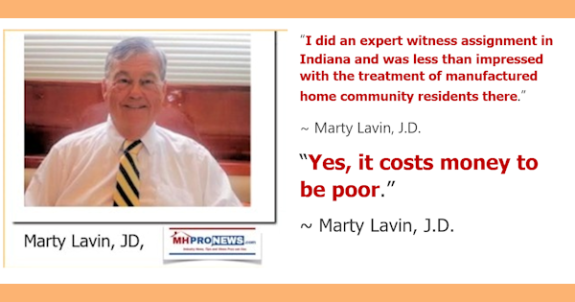
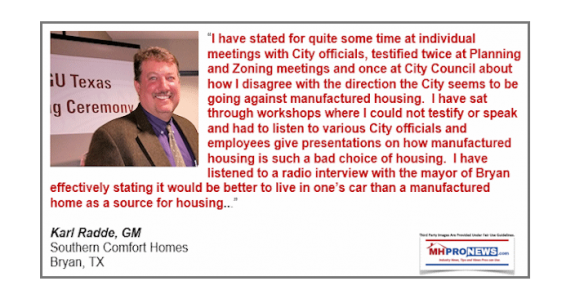
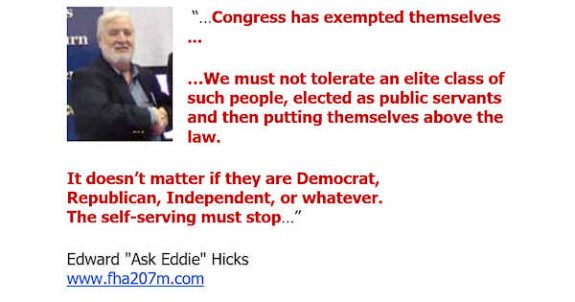
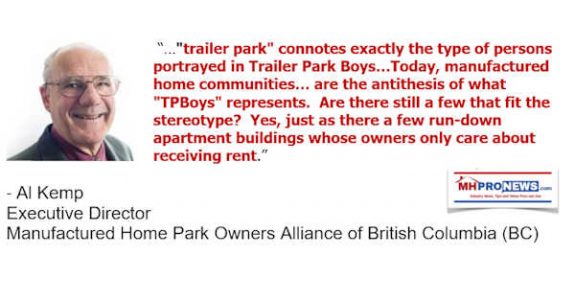
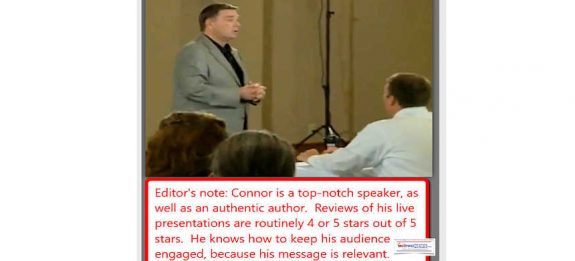
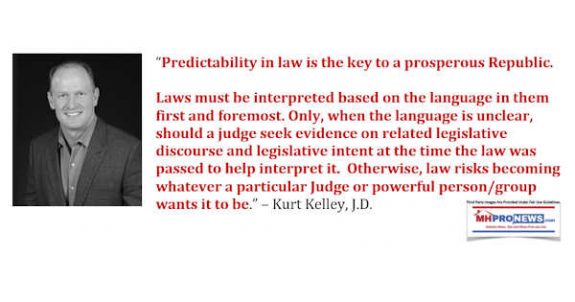
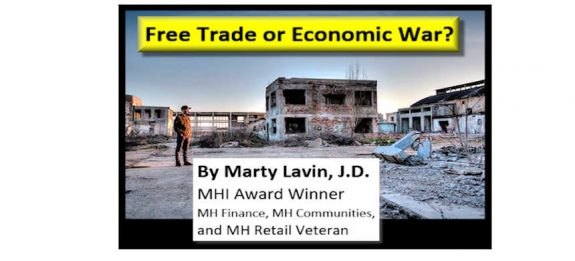
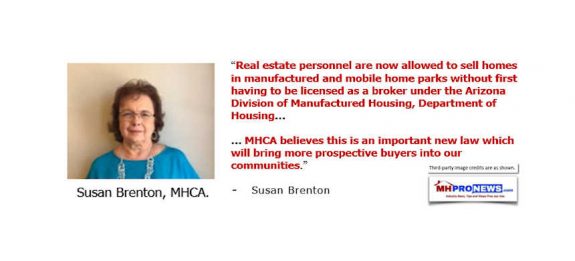
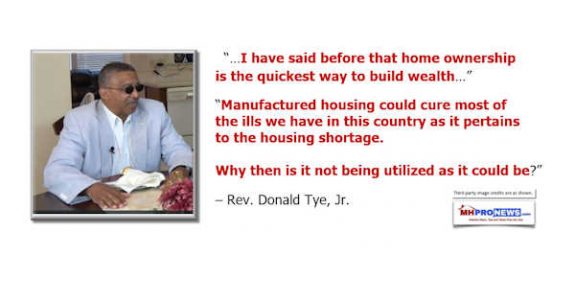
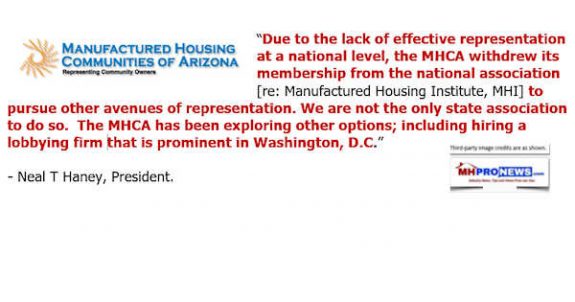
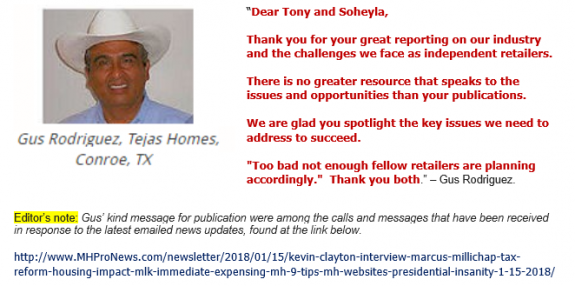
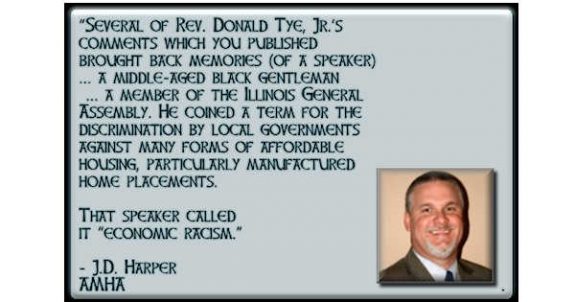
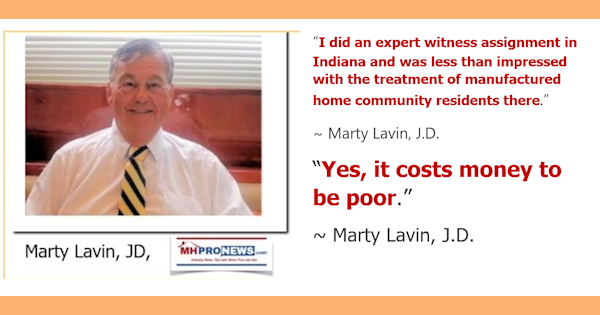
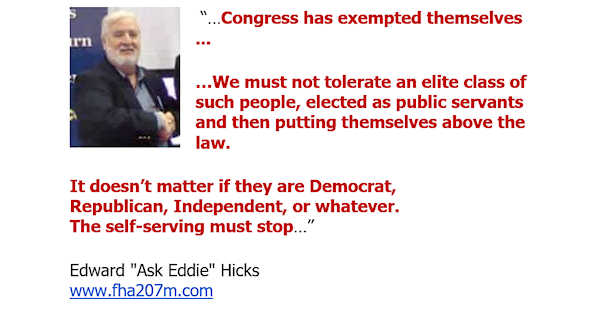
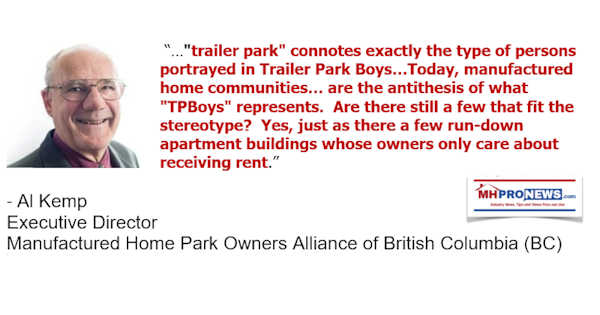
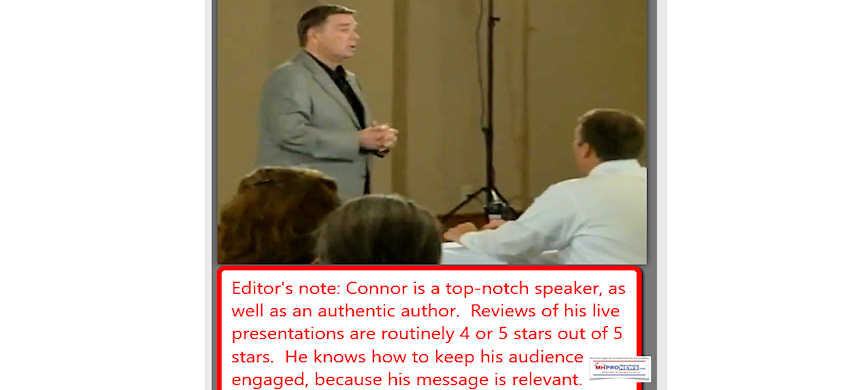
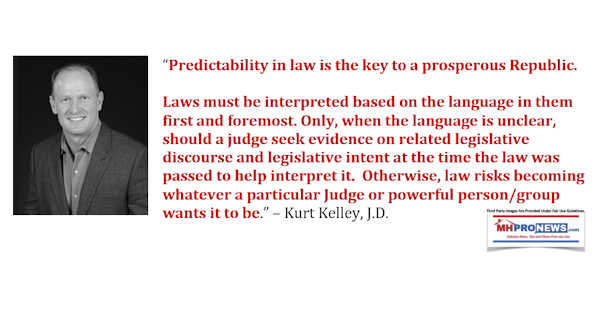
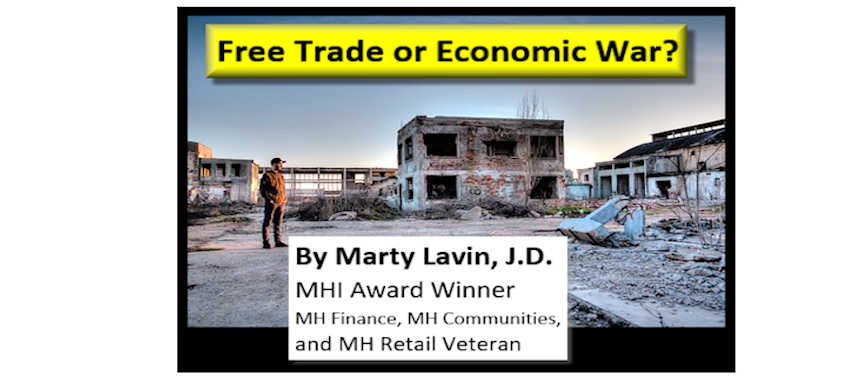
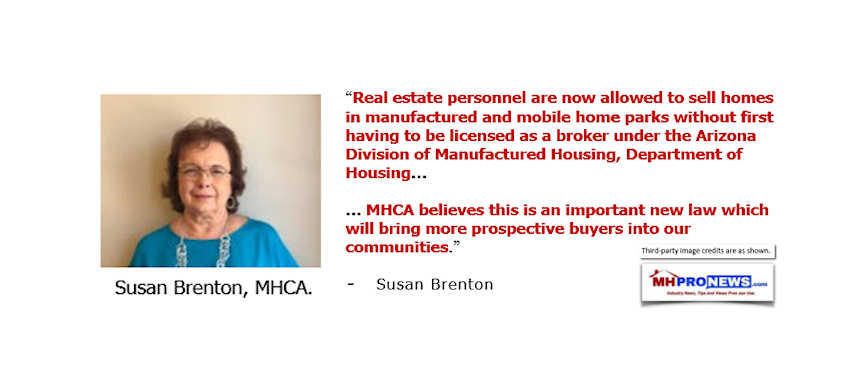
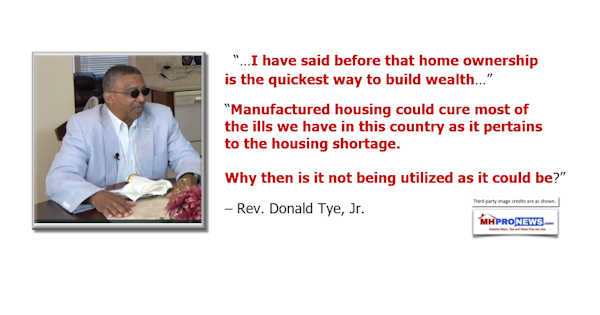
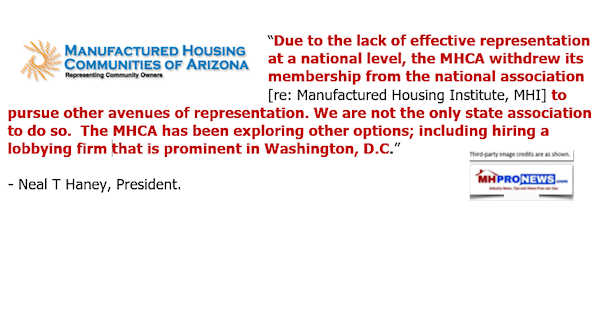
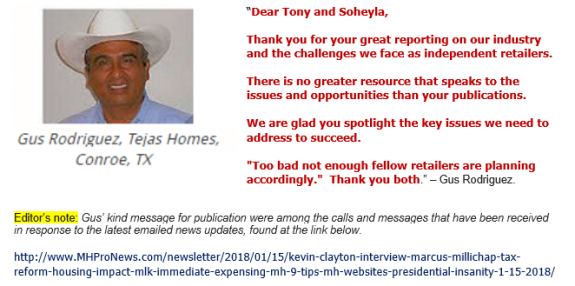
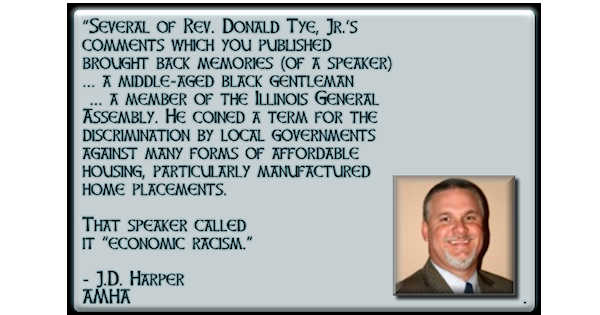
Karl Radde – TMHA, MHI, Southern Comfort Homes – Addressing Bryan City Leaders, Letter on Proposed Manufactured Home Ban
To All Concerned [Bryan City Officials, Others]: As the retail location referenced by Mr. Inderman, I would like to take a moment to address the …